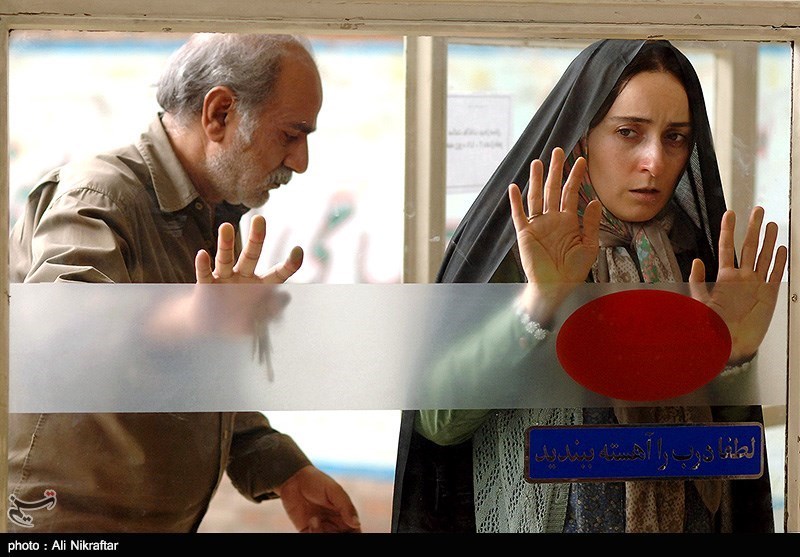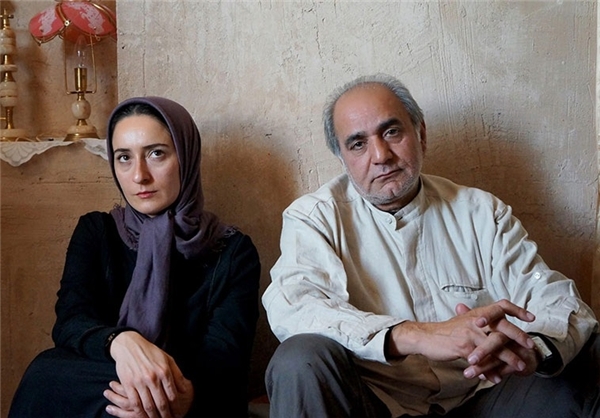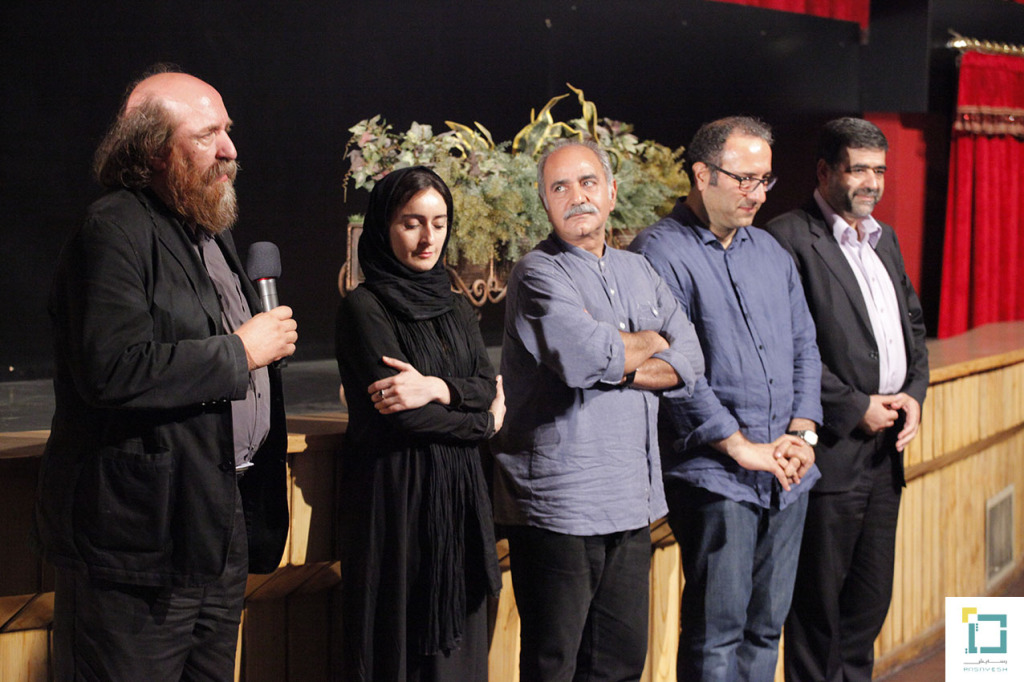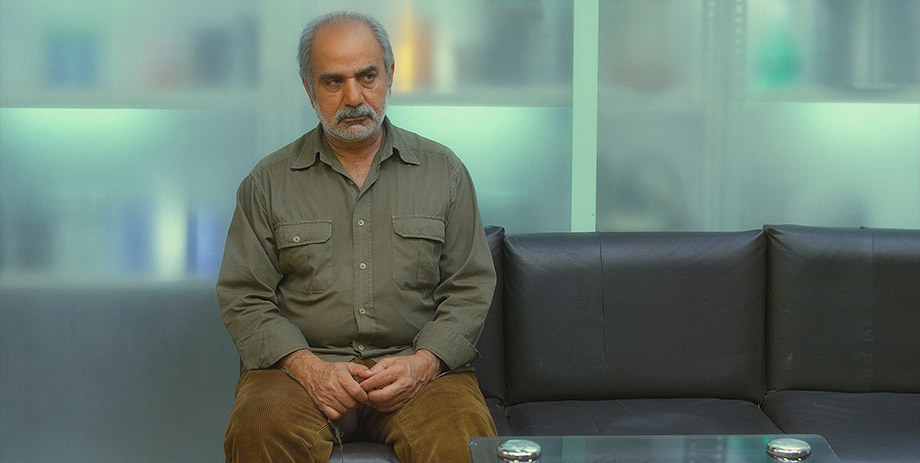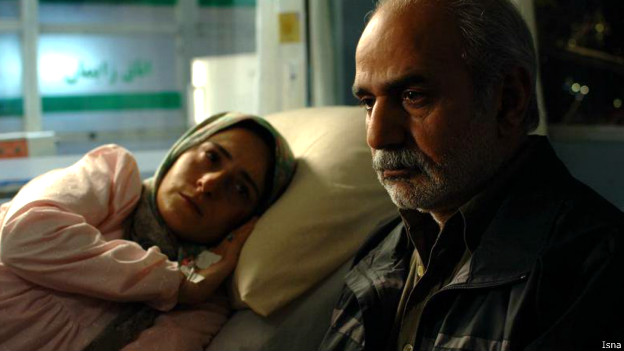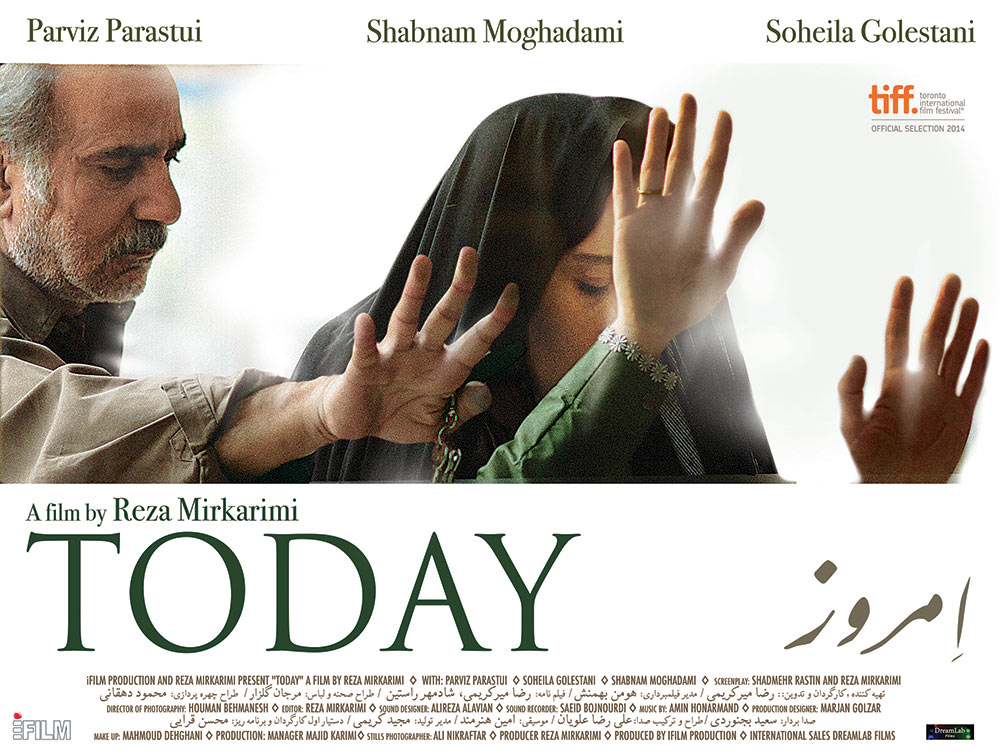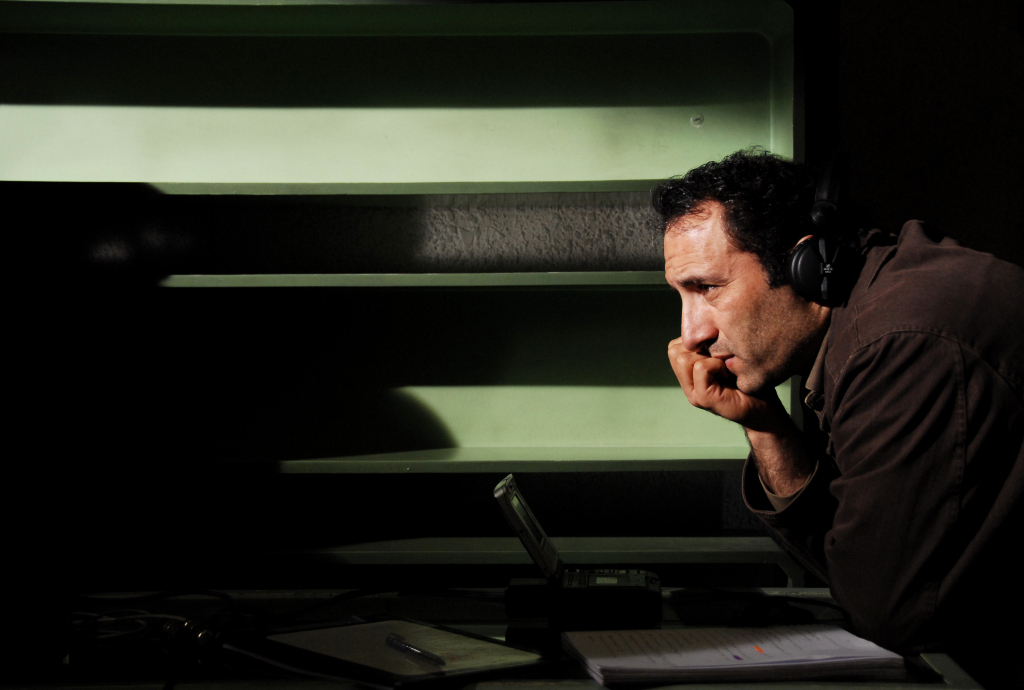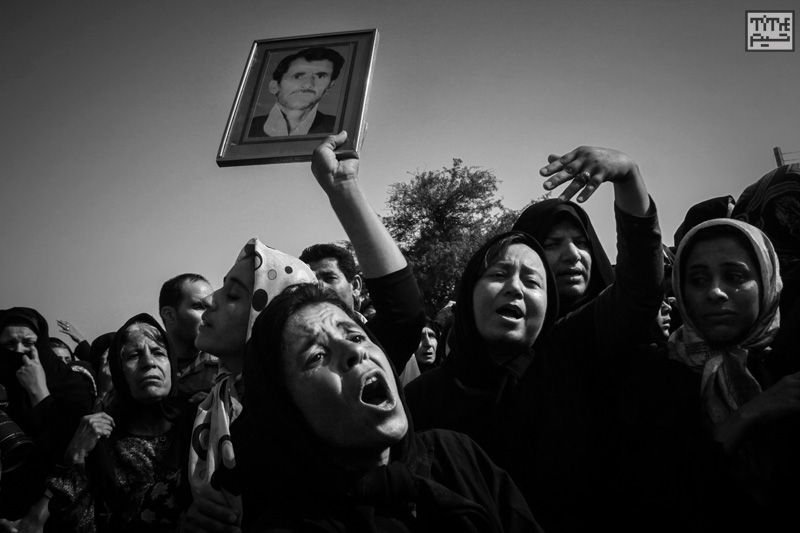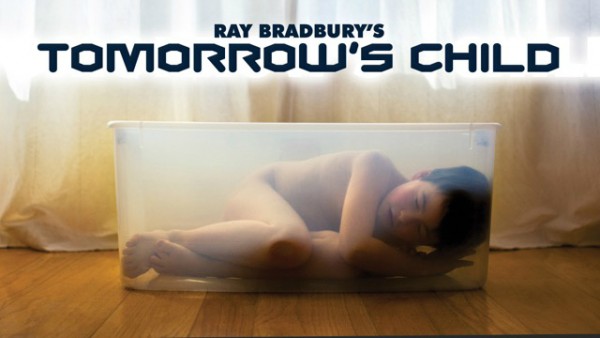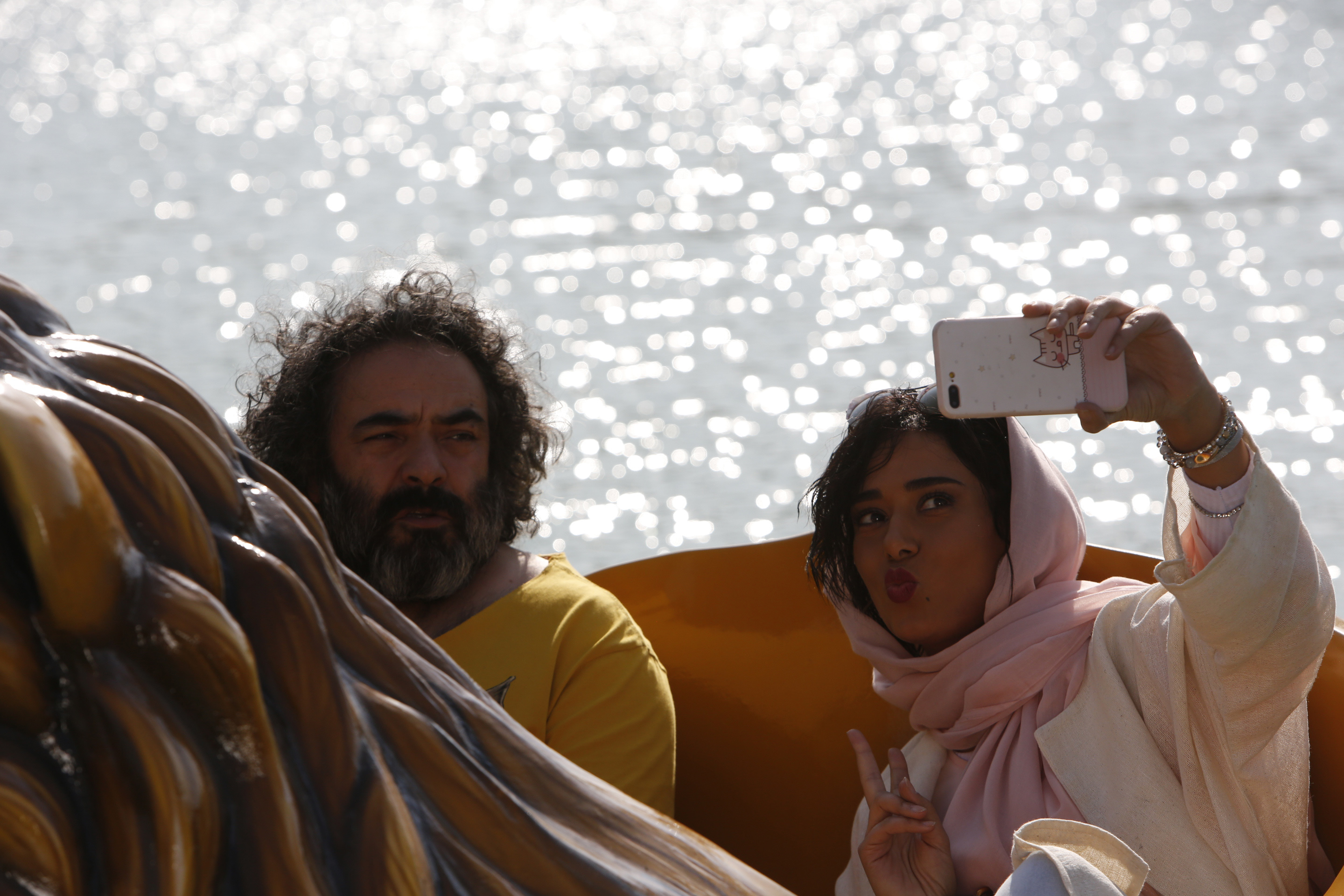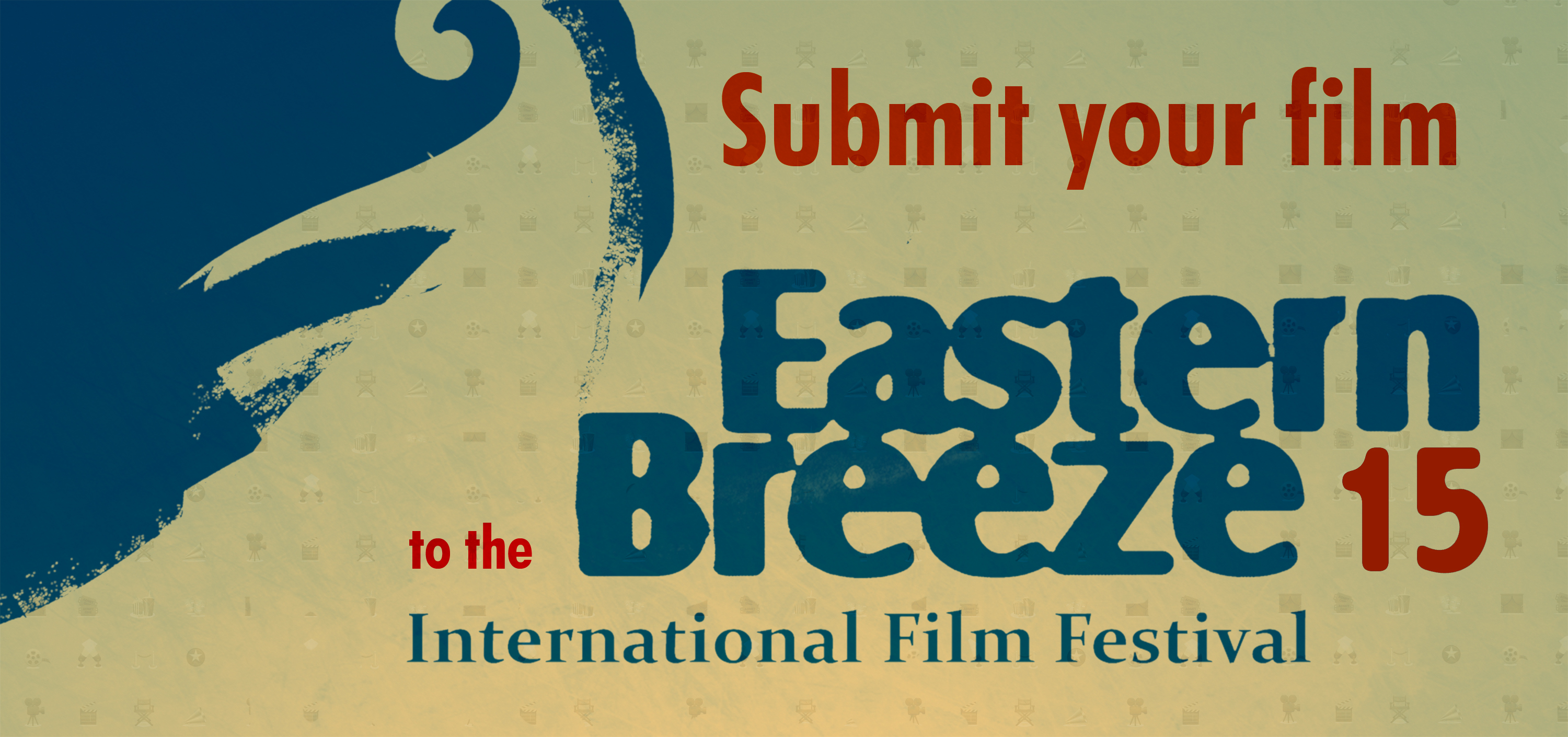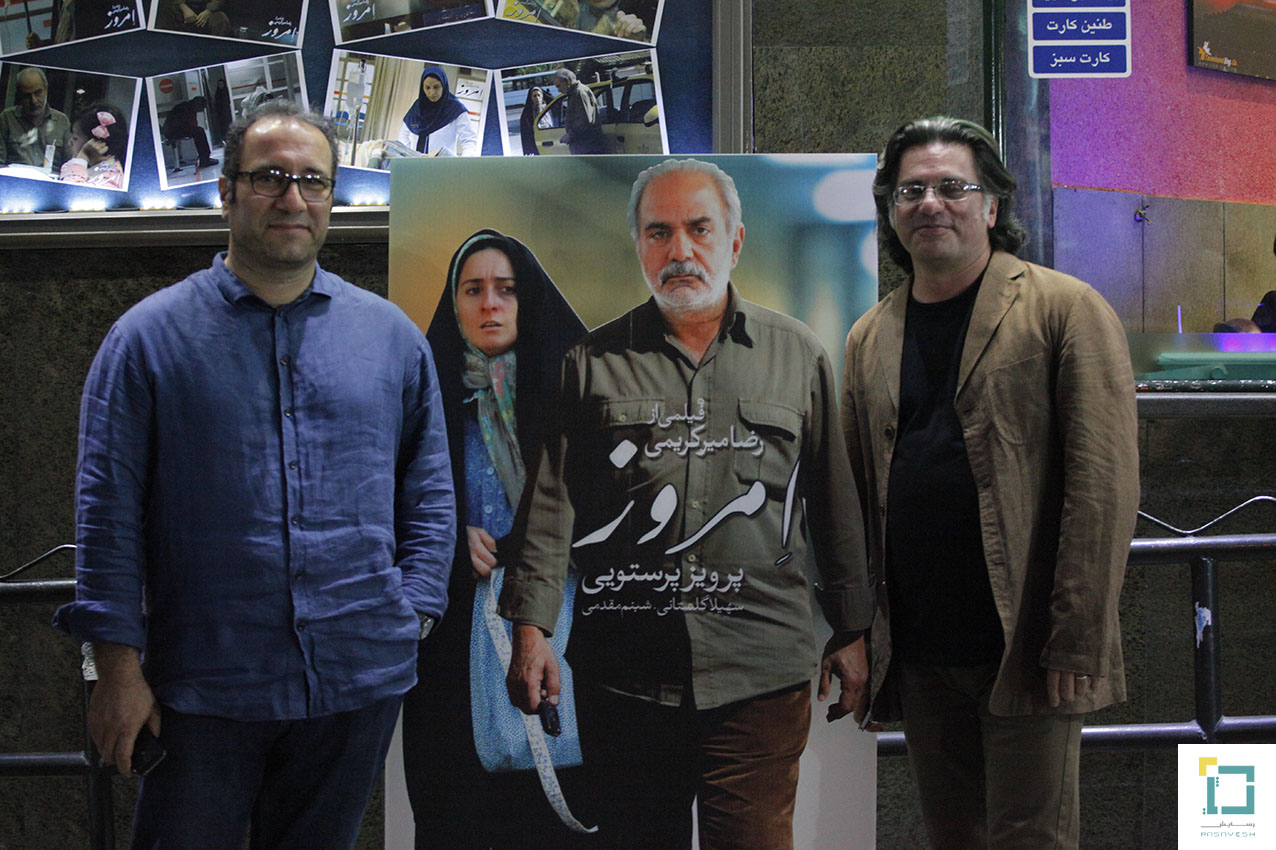
Mir Karimi’s Today and the Notion of Responsibility
Gholamreza Esfehani
Translated by Siavash Joushaghani

Iran
[Web-Dorado_Zoom]
- Mir Karimi, whose latest film Today is currently in theatres, first came to be known through his other works Under The Moonlight, So Close, So Far, As Simple As That, and A Cube of Sugar. In what follows, I will offer a critical analysis of Today based on the notion of responsibility.
- I must say first that responsibility is an important and controversial notion, especially in contemporary Iranian society, which is in a continual struggle between the new values of modernity and the old values of tradition. If I can convince my readers of the complicated relationship between the notion of responsibility and the film Today, we can see together how Mir Karimi’s acute insight about the structure and development of Iranian consciousness is nothing less than admirable.

Mir Karimi’s Today
- First I must invite your attention to various readings of the notion as portrayed by a few characters, each of whom is an important representative of how responsibility is interpreted: Yunas (Parviz Parastoie), Mr. Yaghobi, Mrs. Majd, The Hospital Guard, Yune’s assistant, the young doctor, the pregnant women’s clothing store saleswoman, and even smaller characters.
Mr. Yaghobi is an ostensibly kind and conscienceless man who feels a responsibility toward Sedighe Azizi and promises to help her through the difficult situation of her pregnancy. However, because he is retired, he cannot do anything and on the day he was supposed to fulfill his promise, he promises Yunes that he will do so the next day instead. To him, “responsibility” is summarized as “resolving the bureaucratic problems around an issue as best as possible.”
Mrs. Majd is the hospital supervisor and the head of the birth center at the hospital. The way she talks to her subordinates makes her seem like a more or less firm and law-abiding person. To her, who worked in the same position during the war, responsibility is reducible to obedience to the rules. Mrs. Majd thinks that each person is responsible for her own tasks and no one should encourage irresponsibility by pitying those who fail to abide by the law. We can see this reading in her treatment of the good Samaritan and substitute night shift nurse. We can also see that in her treatment of her children and the rules she has devised for them “not to take each other’s toys” or to “clean their rooms.”
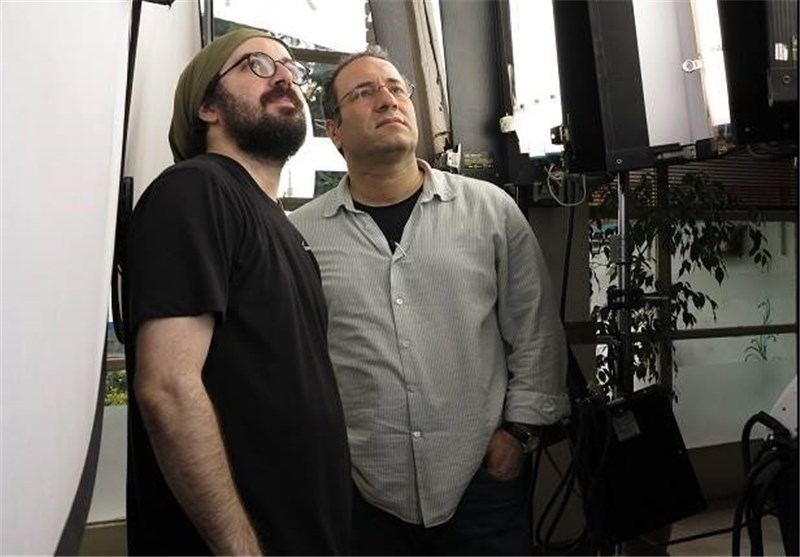
To the Isfahani receptionist, responsibility is equal to “recognizing the needs of people and helping them without getting them embarrassed.” The receptionist complains that “these new nurses are not good at what they do. I will get you in touch with another nurse who is going to come in the afternoon.” She thinks that Yunes is waiting for a baby he did not want and is planning to get rid of it by leaving it to someone else.
The hospital guard summarizes responsibility as avoiding his supervisor’s castigation, saying that “as long as no one castigates you for something wrong, you have fulfilled your responsibility.” This is what the lowest-ranking bureaucrats of an institution seek to do. We know this from how he talks to Yunes when he says “take your car somewhere else, if you keep it here, I’ll have problems.”
Yune’s assistant driver equates responsibility with “risking it all to pay one’s debt to someone who has helped him get a name and status for himself. He is willing to take responsibility for what he thinks is Yunes’ car accident, instructing Yunes to “tell them I was behind the wheel.” He remembers his hard days as a labourer and so he’s ready to do anything for Yunes.
The young doctor sees responsibility in firmly reproaching those who escape their responsibilities, thinking that the most irresponsible people are those who are slow to acknowledge the rights of others, especially of women. In the doctor’s view, one must scold them by retaliating with the same act by taking their own rights away so that they will learn a lesson and fulfill their responsibilities at the same time.
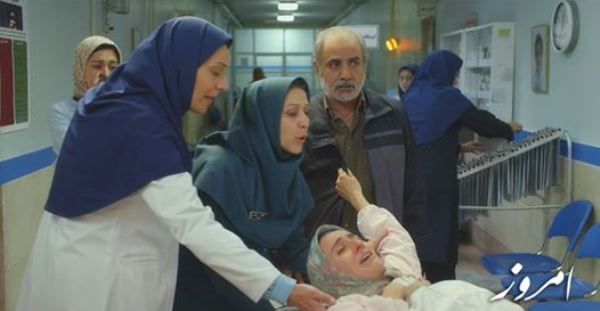
The saleswoman in the hospital lures Yunes to her store with her smile but then scolds and cries at her labourers over matters concerning her own profit. She appears to have a market-driven view of responsibility, focusing on bringing in customers and selling goods to them even if they may not know they need them.
Other characters have their own notions of responsibility, such as the factory labourer who defines responsibility as tuning the radio for the service cars. We can also think of the lunch Yunes has at the beginning of the movie and deduce how his wife sees responsibility. Is not a wife who has so carefully and luxuriously prepared a dish of simple food but with simple delicacies like pickles and tomatoes not a responsible spouse? Perhaps she summarizes responsibility in fulfilling household chores. This view can also be deduced from the way she behaves while awaiting a guest. Consider also the doctor who has ordered his pregnant patient to sign into the hospital thirteen days ahead of her due date because of the stress she was going through. Perhaps he reduces responsibility to an exaggerated response to a patient.
[Web-Dorado_Zoom]
- But who is Yunes? Who does he represent? He is simple taxi driver and we can tell that he is a responsible person but his notion is not as easily reducible to one role or another. How do we know he is responsible? Well, first, he offers Sedighe his cell phone twice in case she needs to call someone again. Second, he then accompanies her to the receptionist. Third, he waters the dry plant and clean up the yellow leaves on the ground. Fourth, he warns a forgetful visitor of a camera he has left on the chair. Fifth, with the help he gives to Mrs. Majd with the water colors and by tucking her in when she is asleep. Sixth, his attention to the problems in the car and to the share of the second driver on the return trip he has to make.These are small references that show Yunes to be a responsible person but the biggest reference is in his encounter with Sedighe. In an unusual act, he ignores the chastising words of hospital staff and takes responsibility for her fate. Although he has his own obligations, he pays for clothing and exits the hospital through the backdoor. In the end of the film, he does not sign the release forms but by takes the baby with him. Is it more important to take responsibility for the living or for the dead? In response to Mr. Yaghoubi, who thinks Yunes is Sedighe’s husband, he does not deny this. When asked “When did you get here?” he lies and responds “Today.” He then takes Sedighe’s son from the hospital and escapes from the roof, thus committing a clearly illegal act and disobeying both his civil and legal obligations to fulfill his responsibility.

- Yunes’s silence is more difficult to decipher. It is a meaningful and mature silence which, despite having the key role in Today, means he only has a few lines. His silence is both part of his character and part of his reaction to the judgmental conclusions of hospital staff. He plays an introverted and quiet character, which is contradictory to our general understanding of responsibility. It is as if we equate responsibility with superfluity of stress and verbosity.He even remains unusually quiet when he has to defend himself against the accusations of the staff. His silence, it seems, is denying all aforementioned descriptions of responsibility and he cannot accept any one of those interpretations. Yunes has his own definition of the notion. The question then is, what is his definition? His definition is unclear but he definitely has a especial sense of the word. It is as if he has a disposition for it. Unlike others, he does not seem to act out of a guiding rule or definition. He is just responsible to begin with and action takes priority over theory. For him, responsibility is a virtue.

Mir Karimi’s Today
- War – what does it refer to in the context of Today? Yunes limps a little and complains about it too. This tells us that he was probably a soldier during the war. Mrs. Majd, who changes her character in the second half of the movie, also participated in the war. Is the struggle in war the struggle for responsibility? Can we say that the generation that fought in the war is more responsible than the rest of society? Mrs. Majd thinks that today’s men are mere teenagers. They collapse beside their pregnant wives. Is she right when she perhaps implies that they are irresponsible in this way? Is it the experience of war that has created a gap between the more responsible generation of the war and the less responsible generation after?
- Yunes has a more restrained character as opposed to a dutiful one. This subtle difference gives the movie a philosophical aura. He avoids all other definitions of responsibility. Although responsibility is a virtue to Yunes, we are left asking if he is responsible partially because he does not have a child himself.

Today is the story of a man who, as Yunes says, has got here “today.” Yunes is a man from the past who has arrived at this destination today. He appears in Sedighe’s life as an old acquaintance and becomes responsible for Sedighe as she finds herself responsible for the child inside of her. Is responsibility essentially a mother’s task about caregiving?Yunes does not escape his responsibility in a belly of a fish. Some call the story of Yunes the prophet an ironic proverb. Yunes of the Bible finds the monumental responsibility of being a prophet of god intolerable, at least according to the biblical account. Is the Yunes of Today offering us a new take on Yunes the prophet? A Yunes who has been ordered to bear the responsibility of Sedighe?Mir Karimi’s Today asks again the question “what is responsibility?”
- It is clear that, like an artist, Mir Karimi takes a jab at offering the best definition out there relative to what is there in society. He wants to produce a definition at a new level so that it is better and more virtuous. Therefore, he dismantles types of rule-based definitions that rise from more or less theoretical grounds. Mir Karimi does so in order to avoid offering a definition that is posterior and relative to the human context. He wants to provide an a priori definition that is closer to the essence of what makes us human.Humanity is the very struggle for responsibility and duty.Even in their early beginnings humans felt responsible for the surrounding city and society, a responsibility which does not lend itself to a basic rationalization. Mir Karimi artistically portrays a human equal to responsibility. When Mrs. Majd metaphorically and nostalgically asks Yunes “What are you looking for?” Mir Karimi responds in the guise of Yunes, saying “What are you looking for yourself?” Mir Karimi is talking to us directly here and so lets us philosophically look at the notion of responsibility now that it has come out of the director’s sharp outlook and been imposed on us, the viewers.

Let us assume the position of a moviegoer who is frustrated by Yunes’s silence and anticipates that Yunes will collapse at any moment and erupt in anger. He will be disappointed, and Yunes’s silence buzzes around and stings him until the very end. Like some of the characters, he may even ask the director, “What are you looking for?” and hear the echo in response “What are you looking for?”
Being in the audience requires that one bears the responsibility of their disappointment themselves and the risk and struggle to look for a meaning in the film. The filmmaker, in this writer’s humble opinion, has indeed successfully clarified the question for us and in the end gave us the question “What is responsibility?”
Questioning responsibility opens another field of inquiry which involves risking to look for real and absolute answers and not complain about the specific hardships that manifest themselves on our way of living in the form of philosophy.
